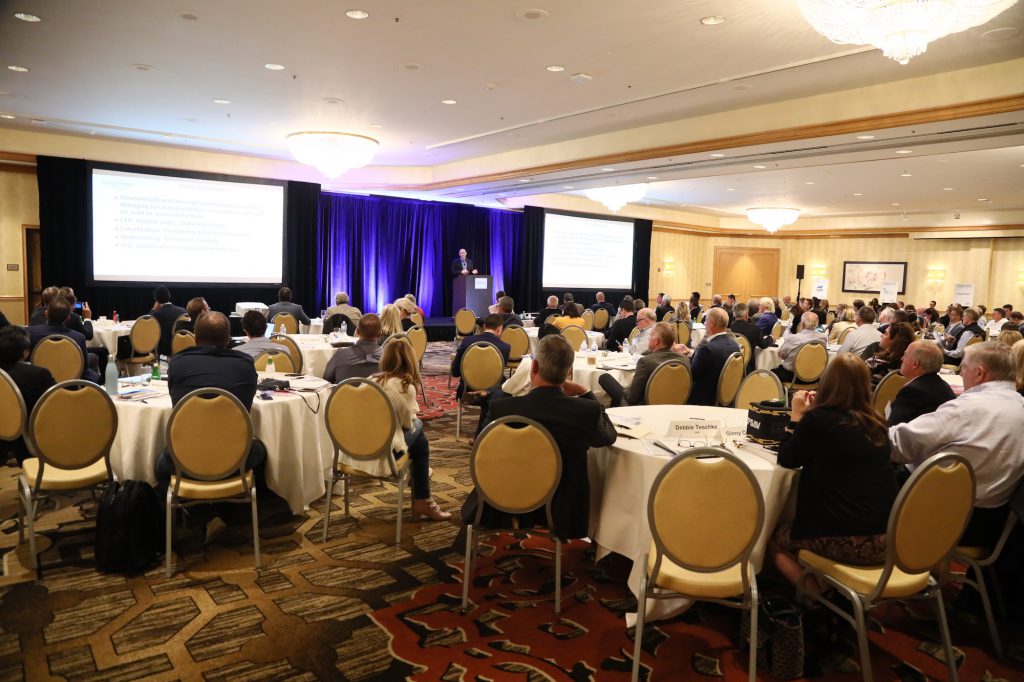Presented by:
Harry Moser
Founder and president, Reshoring Initiative
Sell More “Made in USA” Product to Reduce Motivation for More Tariffs
Harry Moser discussed the increasing advantages of reshoring now driving U.S. retailers and manufacturers to bring back manufacturing to North America. Recent tariff changes add pressure for decision-makers and encourage industry leaders to more carefully assess the costs and risks associated with overseas production.
The Reshoring Initiative, a not-for-profit organization, aims to return well-paying manufacturing jobs to the U.S. from overseas. It assists U.S. companies in more accurately assessing their total cost of ownership to determine the profit and loss impact of reshoring.

Moser outlined definitions for reshoring, backshoring, onshoring and insourcing for bringing back manufacture of products to be sold or assembled in the U.S. Trends contributing to the benefits of reshoring include:
eCommerce: Requires immediate replenishment
Rapid design changes: Need to test products, collaborate with influencers, fulfill consumer expectations
Advanced technologies: Minimizes impact of higher wages. Lessens production time
Heavy retail discounting: Requires lower inventory, smaller MOQ
Rising offshore wages: Reduces the price gap
Preference for Made in USA: Retailer preferences—Help with volume/margin
Customization: Requires quick response
Waste reduction: Savings in production costs and overstocks

In 2017 the combined reshoring and related foreign direct investment (FDI) announcements surged, adding more than 171,000 jobs, representing 90% of the 189,000 total manufacturing jobs added in 2017. Although the public focus is on returning jobs from China, Moser also listed the number of jobs reclaimed from nine other countries in Asia, North America and Europe.
Social benefits to boosting U.S. manufacturing include reducing the country’s budget deficit, increasing domestic demand and strengthening the middle class. Adding manufacturing jobs increases consumer spending power.
Reshoring Benefits Manufacturers
U.S. manufacturers are reevaluating their operations and taking a closer look at the benefits of reshoring such as:
- Higher product quality and consistency
- Fewer supply chain disruptions
- Shorter delivery times and reduced freight costs
- Elimination of large-run production requirements
- Lower inventory levels and less shelf time
- Better responsiveness to changing customer demands
- Minimal intellectual property and regulatory compliance risks
- Improved innovation and product differentiation
- Easier communication with fewer language and time zone barriers
- Local tax incentives

Moser illustrated several case studies with numerous metrics to reveal cost/benefit analysis of overseas vs. domestic manufacturing. He concentrated on housewares manufacturers, but also reported that 10 industries, including transportation, electrical equipment, medical supplies, apparel, chemicals and as well as rubber, plastic, metal, wood and paper have benefited from reshoring.
Retailers Also Benefit from Reshoring
Reshoring also helps retailers save on out-of-stocks and overstocks, since shorter lead times and supply chains improve product availability. Faster delivery generates savings from lost orders and results in fewer write-downs.
Resources Available
The Reshoring Initiative provides valuable tools and resources. Its Total Cost of Ownership Estimator™ helps companies evaluate sourcing, identify alternatives and make a case when selling against offshore competitors. The group maintains a library of case studies and articles offers a searchable database of trend data and presents workshops and webinars.
Learn more about the Reshoring Initiative at www.reshorenow.org



